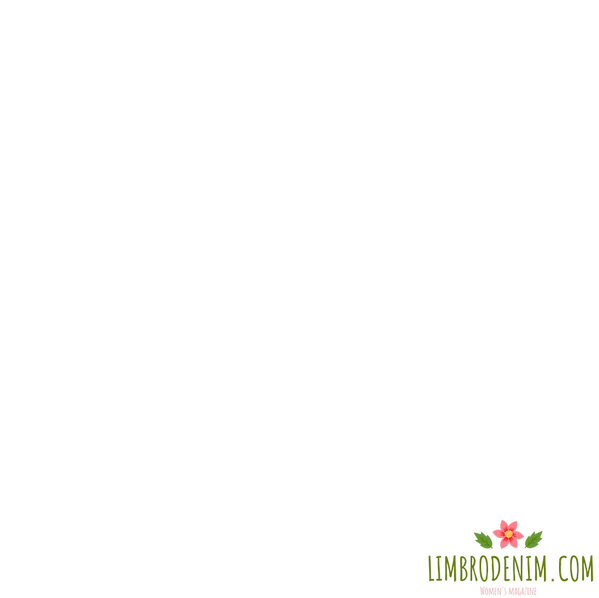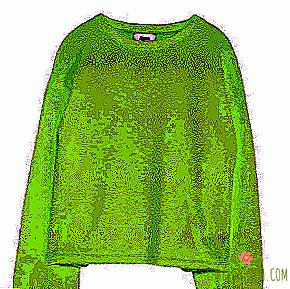Poet Linor Goralik about favorite books
IN BACKGROUND "BOOK SHELF" we ask journalists, writers, scholars, curators, and other heroines about their literary preferences and publications, which occupy an important place in their bookcase. Today, poet, writer and artist Linor Goralik shares his stories about favorite books.

 I had a very reading family, but in no way a dissident one, so that we shared a lovingly, with great taste the collected circle of reading the usual Soviet intelligentsia. The plus was that nothing was hidden from me, including papa’s medical textbooks, which I adored for pictures: I wasn’t interested at all, where it’s written, I wasn’t even interested in who had pipiska, but terribly interested in this type of image - between the scheme and drawing, with watercolor inserts and numbered arrows. It was absolutely fascinating, I could look at them for hours.
I had a very reading family, but in no way a dissident one, so that we shared a lovingly, with great taste the collected circle of reading the usual Soviet intelligentsia. The plus was that nothing was hidden from me, including papa’s medical textbooks, which I adored for pictures: I wasn’t interested at all, where it’s written, I wasn’t even interested in who had pipiska, but terribly interested in this type of image - between the scheme and drawing, with watercolor inserts and numbered arrows. It was absolutely fascinating, I could look at them for hours.
***
I read everything, including (I still remember the name) the book "Our collective farm stands on a hill." I was, of course, eight or nine or ten years old, and the reading made me completely happy. My parents had an amazing gift to choose from what was considered adult literature, books that would suit me. So I got into the hands of Jerome, Chekhov, so I got some more formally “adult” literature. I was very lucky. I do not know how decisions about books were made for me, but, in my opinion, completely spontaneously and more likely with pleasure than with a sense of duty. And it made the result beautiful.
***
I met the turning book in a pioneer camp - without any connection with my family at all. There was nothing to do before the daze and there was some kind of library - the libraries in the pioneer camp were always collected from lumps, and these lumps are quite amazing. In this particular library, magazines of the late thirties, it seems to me, have come to light. I was about ten or eleven years old, and, alas, I was completely unable to appreciate this gift of fate, but Vertinsky's poems were in one such magazine - and they absolutely amazed me.
Of course, I did not understand their historical context, sensuality, or specific decadent brokenness — but these were Other, Other Poems. I rewrote them in some kind of notebook (the journals could not be taken out), and then asked the librarian where the verses are. They led me to a shelf with poems, and there was a Block. I still remember all of that Block, whom I memorized by heart this summer: by golly, these were not his strongest texts, but these were Other, not school, not bravura or lisping texts of Soviet children's anthologies. And yes, "The Twelve" became for me the most perfect obsession this summer: I have never seen such a structure of a text before (parts written in different sizes, flickering narrative, a feeling of real black magic). From the same shelf for the first time in my life I took a volume of Yesenin and I still remember one tiny text that fascinates:
Where cabbage beds water the sunrise with red water, Klenёnochek little uterus Green udder sucks.
I read it to the girls in the ward, they giggled, and the very nakedness of this text seemed indecent to me - but not at all in the way in which endless, pioneer camp-based romances were indecent. Until this summer, it seemed to me that poetry was something that had to be ottarabanit at school; I, of course, wrote some nursery rhymes, like all children from good families: this did not reflect any love for poetry, but reflected only the desire to impress adults — the usual childish rhyming. And suddenly I saw what verses are - real verses.
***
If we talk about reading the Russian classics, then I was an ordinary Soviet honors pupil - in the sense that everything that I went through at the school interested me very little: to ransack and forget. On the other hand, I was lucky: at fourteen I left for Israel, that is, I didn’t get to great Russian literature at school. So, I got almost all Pushkin "unschooled". I got intact Tolstoy, almost the whole of Chekhov and Gogol; I cannot read the unfortunate "Taras Bulba" until now, because my school managed to take care of it.
Poems for me to write easier than prose. You build verses with every second tension, putting a huge amount of strength not just in every word, but in every syllable, in every sound; for me, poetry is an infinitely scrupulous work: the verse is designed so that it is impossible to change a syllable in it without the whole text falling apart, and if you can change it means that I didn’t write it well. I write poems very slowly - I can write eight lines for several months, and these texts for me very quickly become alienated and uninteresting.
***
All I wanted when I was writing a book was for her to stop living in my head. My husband has a wonderful adage: "All I want is for me to open my head and pour mercury out of it." Yes, I want to get rid of what torments me. My letter is tremendously therapeutic.
***
I happened to read about ten years ago: I almost lost the ability to read great prose. This is a very offensive idiosyncrasy. Prose is short and prose is on the verge of a verse — this is please and this is very important, but altogether “prose” prose is, alas. I always wait for this mechanism to be fixed; Recently, it seems, there is hope for this, but so far (and in recent years) my main reading is non-fiction and poetry.
***
I do not believe in the hierarchical system of assessing literature from the "great" to the "insignificant." I always think that it would be good for literature to give people some — even if temporary — consolation, while not inclining them towards evil, that is, not encouraging them to cause others suffering for the sake of the author's own goals. Consolation is not necessarily watering the brain with molasses; consolation can be given by empathy, discovery, anxiety, and pain. And now I think: if Asadov's verses bring comfort to a man - thank you, my God, for Asadov. Another thing is that a person who knows how to find solace in verses wants to show not only Asadov: what if he did not see other verses? Suddenly they will give him a lot?
***
The other side of reading, apart from consolation, is the intensification of internal dialogue, whether you like it or not. I have never been in a situation where the book would answer the questions I have put — but it always answers questions that did not occur to me, questions I didn’t even know that I asked them.
***
There are books that seem to me "mine" - in the sense that people are "mine." These are very different books, but they all feel like something that has made my life bigger, deeper, better. I know many authors personally, and this is a very important factor: to hear the voice of a person you know and love in the text is a very special matter; by the way, there are those who can read any books with a detached look, free from personal attachments; I can not - and would not want to be able to. I used to think that poetry is that monologue about myself and the world that a person in a personal conversation is unlikely to just do; Well, there are poems to it, and the poems of close people with such a look are absolutely priceless.

Fedor Swarovsky
"Everyone wants to be robots"
Swarovski texts amaze me with how pseudo-simple constructions, easily readable narrative texts incredibly go beyond the boundaries of the events and phenomena described in them, exposing a huge metaphysical picture of the world.
Stanislav Lvovsky
"Poems about Motherland"
"Poems about the Motherland" were for me, among many other things, thus unthinkably an important monologue of a private person about one of the most difficult aspects of identity and subjectivity.
Mikhail Aizenberg
"Behind the Red Gate"
For me, Eisenberg is the magic of the existence of a text in two dimensions at once, the magic of a very special optics: a person - small, breathing - is seen with crystal clarity, while the universe around him floats and spreads, and holds together solely on the poet's word of honor.
Evgenia Lavut
"Cupid and others."
Among the Zhenya texts there is a special, separate category - dry texts about strong experiences; for me (as in many of her other texts, by the way) lies a very special magic - the magic of almost direct speech about what is practically impossible to speak in direct speech.
Maria Stepanova
"Lyrics, voice"
Masha is a very kind person, and her texts for me are very native texts: sometimes it seems to me that the same things hurt us, that our internal monologues could be one common dialogue. Therefore, reading her poems gives me the same, many desired feeling of recognizing myself in someone else’s verse, that community that is not given in other ways.
Vladimir Gandelsman
"Quiet Coat"
Most of all when reading Gandelsman, I want two things: never to stop - and never read it again - it hurts; Sometimes it seems to me that this is a text without skin, and he also leaves the reader without skin, in a completely unbearable space of complete awareness of his own mortality, universal mortality - which, perhaps, poetry should do with the reader.
Grigory Dashevsky
"Heinrich and Simon"
I miss Grisha terribly - and by that ability to smile, speaking of the most terrible thing that is forever imprinted in his poems. And yet - in absolute purity of voice, absolute clarity of thought - and, if possible, turn to it as a perfect, immaculate moral tuning fork. And now only to his poems and remains for it to turn.
Dmitry Vodennikov
"How to live - to be loved"
Impossible lyrics - because it often seems that it is impossible — just like that, impossible just — so frankly, so directly, impossible. But for Dima, it is possible, and more probably no one dares; Dima is one.
Elena Fanaylova
"Black costumes"
The texts of Lena are completely ruthless to the reader - in the sense in which the ophthalmologist is ruthless: either we are afraid to make the patient unpleasant, or we give him the opportunity to clearly see the world with our own eyes. It seems to me that these texts are completely ruthless to their author - and it always hurts me for their author.
Sergey Kruglov
"Mirror"
Kruglov - a poet and a priest - for me is an amazingly important example of how a poet can talk about faith: there is goodness without molasses, gratitude without an uniqueness, anxiety without frenzy, love for a person without the desire to feed people - but with conscious and deep compassion, compassion, which distinguishes, it seems to me, true faith from formal religiosity. For me, these texts are priceless.




